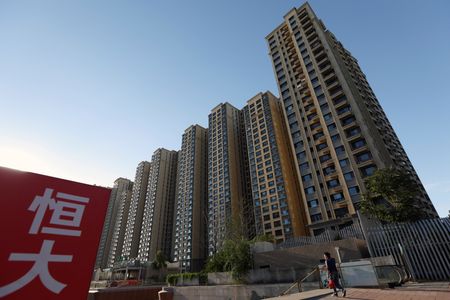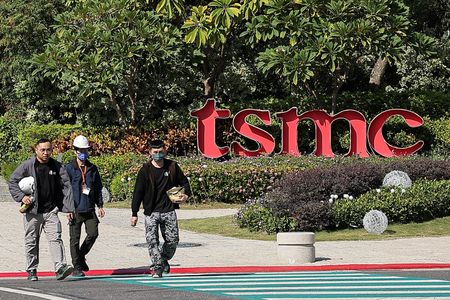By Orathai Sriring and Kitiphong Thaichareon
BANGKOK (Reuters) -Thailand’s central bank raised its key interest rate for the first time in nearly four years on Wednesday to counter surging inflation, signalling further gradual increases as an economic recovery gains momentum.
The Bank of Thailand (BOT), which had been among Asia’s least hawkish central banks, finally joined most of its peers, raising its one-day repurchase rate to 0.75% from0.50% as consumer inflation hovers near 14-year highs.
Its monetary policy committee (MPC) said further hikes would be carried out “in a gradual and measured manner consistent with the growth and inflation outlook”.
A director at the bank’s Financial Stability Department, Don Nakornthab, said the rate was still low compared with an average of 2% over the past two decades, “so it will take a while to reach that level”.
The Southeast Asian country had maintained its policy focus on supporting the economic recovery, which has lagged its neighbours due mainly to tourism curbs during the COVID-19 pandemic. The vital tourism sector has just begun to recover as restrictions were eased.
Driven by energy prices, consumer prices rose 7.61% in July from a year earlier, far above the BOT’s target range of 1-3%.
The bank said it expected inflation to remain high for the rest of the year before gradually falling to its target range in 2023 as supply-side price pressures eased.
TOURISM REBOUND
The MPC voted 6-1 for the quarter point hike in the benchmark rate from the record low it had been at since May 2020.
One member voted to raise the rate by 50 basis points, saying that would reduce the risk of aggressive tightening later on and adding that such a rate increase will not significantly affect the economic recovery.
The rate was last raised in December 2018.
Seventeen of 20 economists surveyed by Reuters had expected a quarter-point hike, with the remainder forecasting a half-point rise.
“The Thai economy is projected to continue recovering with strong momentum” from higher-than-expected foreign tourism activity, Piti Disyatat, secretary of the MPC, said in a statement https://www.bot.or.th/English/PressandSpeeches/Press/2022/Pages/n4065.aspx.
It should return to its pre-COVID level by the end of 2022 “and will continue to gain traction”, he added.
He said the BOT may revise up its 2022 economic growth forecast of 3.3% when it reviews it next month, with foreign tourist numbers expected to beat its forecast of 6 million this year.
The Thai economy expanded 1.5% last year, among the slowest in Southeast Asia.
“If inflation continues to weaken as we expect and growth struggles, the central bank will take a gradual approach to its tightening cycle. We think rates will peak at 1.5% next year,” Gareth Leather of Capital Economics said.
Miguel Chanco, chief Emerging Asia economist at Pantheon Macroeconomics, said Wednesday’s hike was “inevitable and long overdue” and will be followed by another 25 bps move next month.
“That said, if the MPC decides to pause in September, then a hike in November probably should be ruled out, as the inflation picture would’ve improved substantially..”
(Reporting by Orathai Sriring, Kitiphong Thaichareon, Satawasin Staporncharnchai and Chayut Setboonsarng; Editing by Kim Coghill and John Stonestreet)









